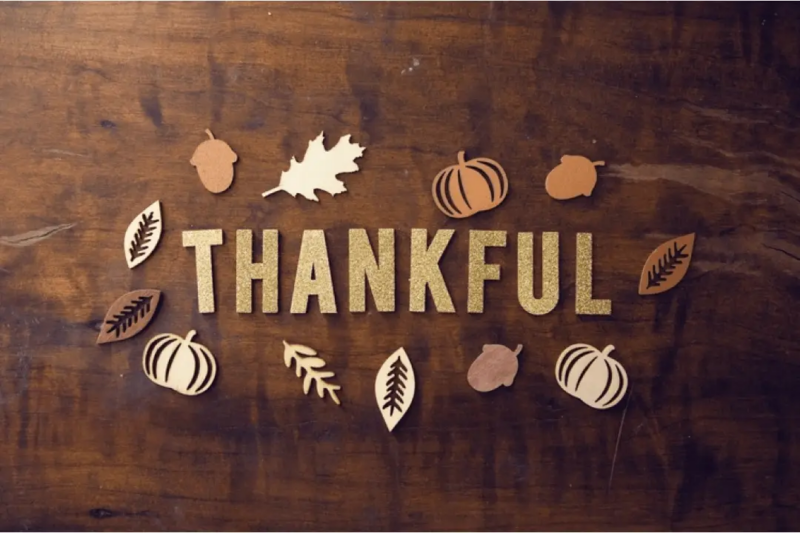
Why Gratitude is More Important Than Ever This Holiday Season
Written By: Charlie Health Editorial Team
November 16, 2020
3 min.
Despite 2020 being a challenging year for many, expressing gratitude this year is more important than ever. The holiday season tends to exacerbate feelings of loneliness, anxiety and depression. Particularly during COVID-19, many are feeling lost and isolated. These feelings can make expressing gratitude this Thanksgiving uncomfortable and difficult. However, research suggests that giving thanks can actually promote mental wellness and help you cope with symptoms you may be struggling with.
Learn more about our Clinical Review Process
A research study, published in 2018, explored the effects of expressing gratitude for college-aged students struggling with depression and anxiety. Participants in the study were randomly assigned to one of three groups: control (psychotherapy only), psychotherapy plus writing letters about their stressful experiences, or psychotherapy plus writing letters expressing gratitude towards others. Participants who wrote letters of gratitude reported “significantly better mental health” than those in either the control or expressive writing groups. The study concluded that the use of gratitude interventions has the ability to enhance overall mental health.
Expressing gratitude is the act of sharing your appreciation for others. It can be as simple as saying “thank you” to someone who has positively impacted your life. Gratitude is a powerful force that can enhance your own mindset as much as it does for those you are expressing gratitude for. Additionally, it is important to remember that showing gratitude can extend beyond just individuals. For example, one might show appreciation for nature, religion or shelter. Expressing gratitude can improve your mental health, enhance relationships with others and remind yourself of positive experiences.
There are many ways to express gratitude this Thanksgiving—below are some ideas you can try.
1. Handwrite thank you notes. In an increasingly digital world, taking the time to handwrite and deliver a thank you note can go a long way.
2. Keep a gratitude journal. Write out a list of the things and people you are thankful for, and how it has positively impacted your life. Even if you don’t share this with others, writing it out for yourself can be a powerful exercise.
3. Practice mindfulness and meditation. This practice can help to illuminate what you are most appreciative of and relieve stress or anxiety you may be experiencing.
4. Remember to smile and say, “thank you.” Expressing gratitude in the small moments can be just as important as the big moments.
5. Give back to your community or causes you care about. Giving back can be more than sending in a donation. Volunteering your time or skill set is a great way to express gratitude for others and your community. Research organizations or causes that are important to you and find out how you can get involved.
6. Gratitude is contagious. Remember that the way you treat others can have a significant influence on others’ days and how they express gratitude. What might seem small in the moment, can actually create a positive impact for many.
Contact Us
If you are struggling this holiday season and notice your symptoms worsening, it’s important to reach out for help—you are not alone. Seeking help is a sign of strength, not weakness. Charlie Health is here to support teens and young adults struggling with mental health and substance use disorders with evidence-based treatment solutions, all from the comfort of home. Call us today, and our clinical team will personalize a treatment program that is right for you.





